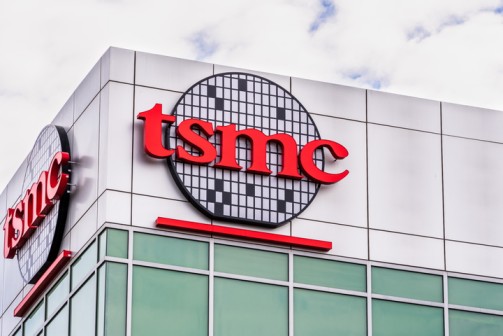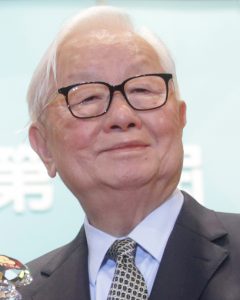TSMC – The World’s First and Most Valued Semiconductor Foundry.
Taiwan Semiconductor is home to many world-famous technology companies, and several foreign companies have also established their manufacturing units in this small country. Along with that, Taiwan Semiconductor is also known for being the headquarters for the world’s largest dedicated independent (pure-play) semiconductor foundry, i.e. TSMC (Taiwan Semiconductor Manufacturing Company, Limited).
TSMC is a semiconductor contract manufacturing and design company. It designs, manufactures, tests, and ships integrated circuits as well as other semiconductor devices to its worldwide customers. TSMC is one of the largest semiconductor companies in Taiwan, with its chips being used in almost every piece of electronic equipment, from smartphones, laptops, and video game consoles to data centres and F-35 fighter jets.
A Brief Introduction
TSMC is a Taiwanese company with its headquarter located in the Hsinchu Science Park in Hsinchu. The company was founded in 1984 and has most of its shares owned by foreign investors. TSMC mainly deals in the manufacturing of Integrated circuits and related services and serves with the brand names CyberShuttle prototyping service, Open Innovation Platform, and eFoundry online services. WaferTech, TSMC PRC, and SSMC are some of its subsidiaries.
TSMC recorded net annual revenue of NT$1.07 trillion in 2019, with 51,297 employees working for it in its global offices. As per the 2020 records, the company can manufacture 13 million 300 mm equivalent wafers per year. Apple, Huawei, Sony, Qualcomm, Broadcom, and HiSilicon are some famous names that are the permanent clients of TSMC, and the list of clients for the company goes as long as 500 companies from across the world.
The Founding Story of TSMC
The late 70s and the beginning of the 80s was the time when semiconductor technology was emerging at a high pace. In 1985, the Taiwan government appointed Morris Chang, a Taiwanese businessman, having more than 25 years of experience in the field of the semiconductor industry, to help them bring the technology to Taiwan. After establishing the first non-profit research institute ITRI in 1986, the Taiwan government, along with Chang, established the world’s first dedicated semiconductor foundry named TSMC in 1987. TSMC was a joint venture between the Taiwan government with 21% shares, Dutch multinational electronics conglomerate Philips with 28% share, and other private investors owning the rest of the shares in the company.

TSMC was founded at the time when companies like Intel, NEC, Fujitsu were already making their chips. But the business idea behind TSMC was to provide the other companies with the chips manufacturing service, saving lots of time and money for them. This idea attracted many customers for TSMC, not only from Taiwan but also the big-name companies from Silicon Valley.
When TSMC had just started its journey, IDMs was ruling the industry. But just in ten years in the business, TSMC was at the level of IDMs. In 1997, the company got listed on the New York Stock Exchange, becoming the first Taiwanese company to do so. The years 2000 onwards have been the year of pure growth for the company, and it added clients like AMD, Apple Inc., Broadcom Inc., Marvell, MediaTek, Nvidia, Qualcomm, Xilinx, NXP, STMicroelectronics and Texas Instruments to its customer list.
By the year 2011, TSMC had increased its research works by 39%. The same year the company also started the trial production of A5 SoC and A6 SoCs for Apple’s iPad and iPhone devices. In 2013, it was among the 100 most valued companies in the world on the FT Global 500 list. In 2014, TSMC was producing A8 and A8X SoCs for Apple, and it became the exclusive producer of A9X. The company surpassed the market capitalization of Intel in 2017 and became the world’s 10th most valuable company in 2020.
Morris Chang, The Founder TSMC
Morris Chang is known as one of the famous businessmen and the founder of TSMC. He was born in Ningbo, Chekiang, on 10 July 1931 and was brought up in British Hong Kong due to the Second Sino-Japanese War. In 1951, he went to the Massachusetts Institute of Technology and obtained a graduate and postgraduate degree in mechanical engineering.

After completing his education, he joined Sylvania Electric Products, and after working for three years at the company, he joined Texas Instruments in 1958. The latter sponsored Chang’s doctorate, and he joined Stanford University in 1964 to complete a PhD in electrical engineering. Chang spent 25 years of his career at Texas Instruments and was leading the company as the group vice president of its worldwide semiconductor business in the later years. After leaving TI in 1984, he also worked as the COO and president of General Instrument Corporation for one year.
The Taiwanese government wanted to work in the field of semiconductor, so it called back Chang to Taiwan and appointed him as the chairman and president of the newly established Industrial Technology Research Institute in 1985. Under his leadership, TSMC has become the largest semiconductor foundry in the world. During his time at TSMC, he served the company at various ranks, including the chairman and the CEO of TSMC. He retired as the CEO on 5 June 2018 from TSMC.

Yashica is a Software Engineer turned Content Writer, who loves to write on social causes and expertise in writing technical stuff. She loves to watch movies and explore new places. She believes that you need to live once before you die. So experimenting with her life and career choices, she is trying to live her life to the fullest.

